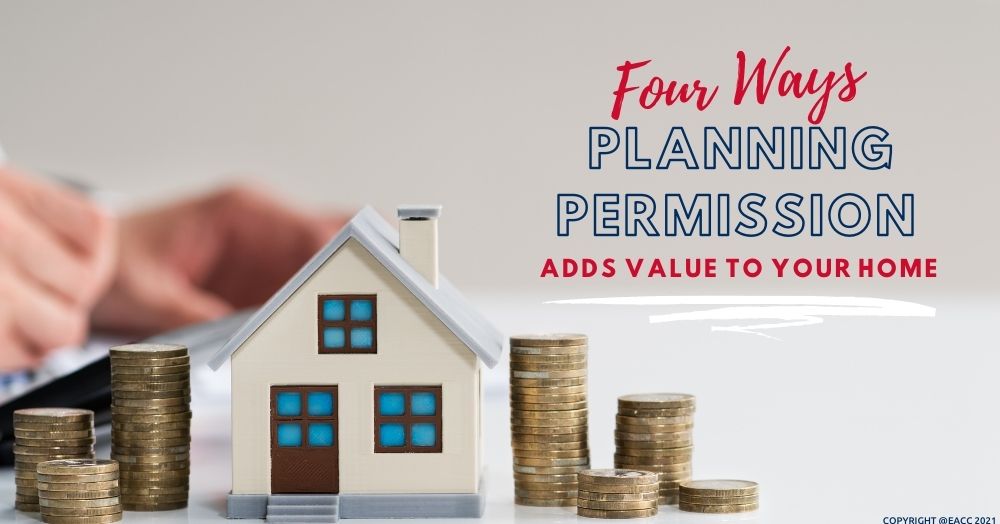Four Ways Planning Permission Adds Value to Your Home
In this two-minute read, we look at a question we often get asked at Hi Residential around the question of whether being granted planning permission adds value to a property?
The quick answer to this is nearly always a yes.
Here are four ways being granted planning permission can add value to your property.
Lofty ambitions – Adding an extra bedroom
A loft conversion that adds an extra bedroom, especially with an ensuite bathroom, can be reasonably expected to add up to 15% to your property’s value.
In some cases, loft conversions might not need permission due to something called Permitted Development. But ALWAYS check with a local architect first. Don’t rely on a quick Google search, ask an expert.
Possible value added: Between 10% and 15%
Create space by converting a garage
A garage has so much more potential than what it was initially built for. Converting it is a great way to add more living space to your home.
Possible value added: Between 7% and 15%
Side or rear extension
Extending to the side or rear of your existing home can often be done without planning permission. But again, it’s always wise to check with an architect and your local authority before you start anything.
This kind of extension creates a host of possibilities to add more square feet to your home, automatically adding value.
Possible value added: Between 10% and 20%
The big one – Converting a house to flats
Feeling ambitious? This grander type of design is one for people looking to maximise a property’s value.
Being granted planning permission to split a property into separate living accommodations is a brilliant way to maximise value.
This gives you the option of converting it yourself and renting the flats out or selling the property with the granted permissions to a property developer.
Possible value added: Between 15% (conservative) and 40% (ambitious)
If you know you’re going to sell the property at some point in the short term (12–18 months), it’s possible that simply having the permission granted will add value to your home.
This is regardless of whether you’ve had the work done or not.
Selling potential
Selling a property that has been granted permission for improvements often attracts a broader pool of potential buyers.
And by creating this extra interest, you fuel demand which usually leads to more offers and a higher sales price.
And remember, it’s wise to contact a local architect to see how feasible your ideas are. We can recommend someone to you.
If you want an expert opinion on what kind of value gaining planning permission could add to your property, give us a call today.






